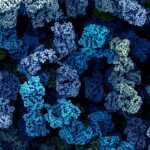Fungal RNA Biology
Why is it important to understand mRNA degradation in a cell? First, RNA degradation has a clearing function and removes RNAs arising from transcription, splicing, export, or translation “accidents” to ensure robust gene expression (see Chap. 8). Second, while regulation of gene expression has a very important transcription component, mRNAs must be turned over rapidly for fast changes in transcriptome composition. Coordinated destabilization of an entire class of mRNAs can promote major physiological changes in a cell. Third, specific mechanisms of mRNA decay can serve to regulate gene expression through feedback control. Research on these topics has been frequently done first with yeasts and led to a better understanding of gene expression in eukaryotes. We start with an overview of the methods for measuring mRNA decay on a large scale with an emphasis on how technical issues affect the current picture of global mRNA decay in yeast. Next, we describe the importance of nuclear degradation in shaping the stable transcriptome. Once in the cytoplasm, mRNAs are exposed to translation and we provide an overview of the complexes and individual enzymes that ensure progressive deadenylation, mRNA decapping, and 5′ to 3′ or 3′ to 5′ exonucleolytic RNA degradation. Finally, how organelle transcripts are degraded in mitochondria is briefly exposed.


